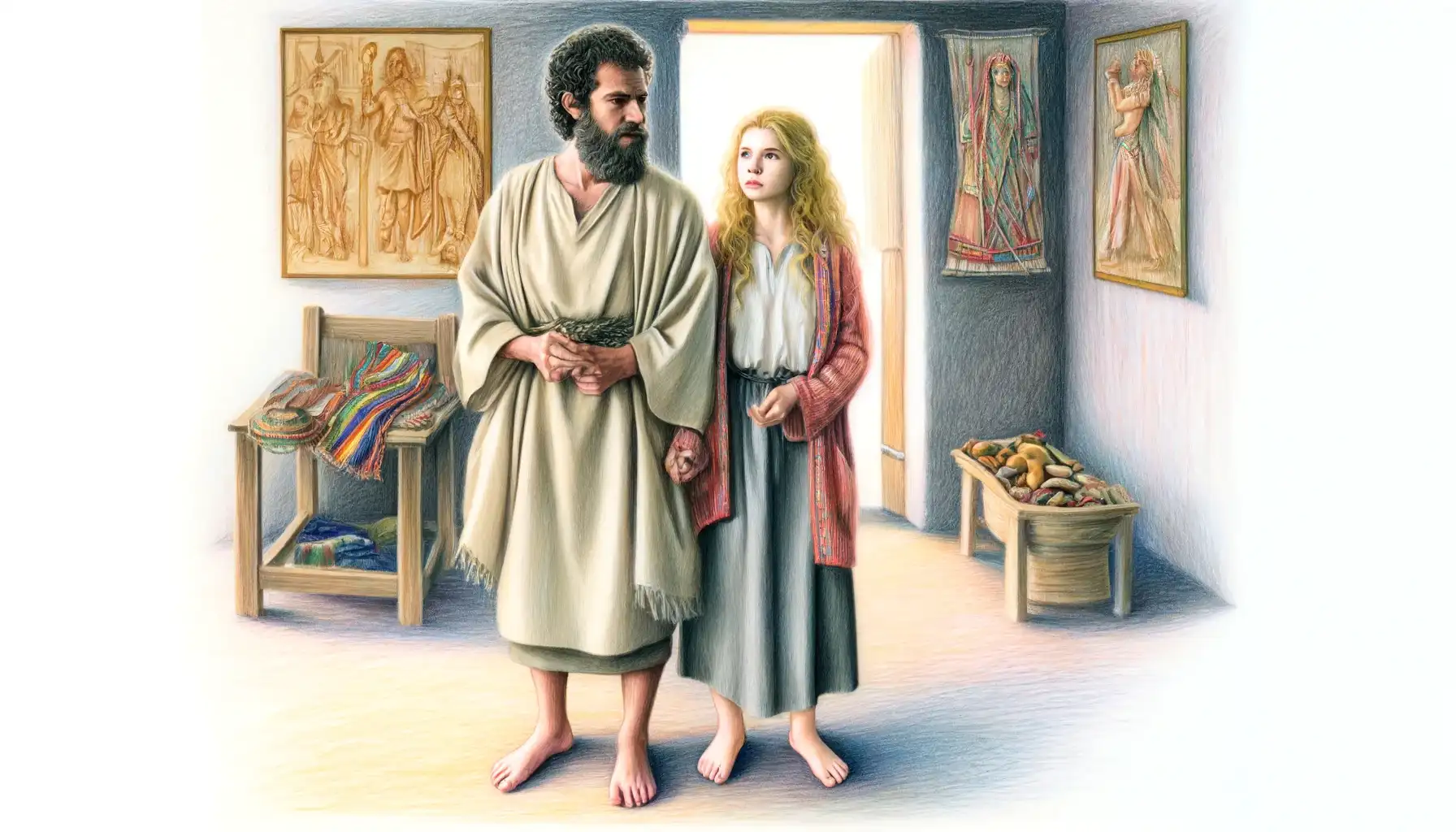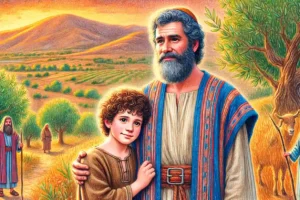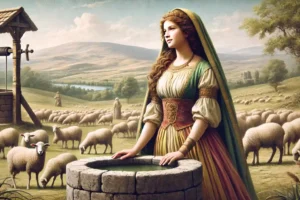
Hosea: Prophet Instructed to Marry a Prostitute
Hosea, a prophet in the Hebrew Bible, was instructed by God to marry a prostitute named Gomer. This symbolic act represented God’s relationship with unfaithful Israel, highlighting themes of judgment, love, and redemption.
Quick Facts
- Prophet of the Northern Kingdom: Hosea prophesied to the northern kingdom of Israel during the 8th century B.C.
- Marriage to Gomer: God commanded Hosea to marry Gomer, a prostitute, symbolizing Israel’s unfaithfulness.
- Children with Symbolic Names: Hosea and Gomer had three children whose names represented God’s judgment and future restoration of Israel.
- Message of Repentance: Hosea called Israel to repentance, warning of impending judgment due to their idolatry and infidelity.
- Theme of God’s Love: Despite Israel’s unfaithfulness, Hosea’s prophecies emphasize God’s enduring love and willingness to forgive and restore His people.
- Book of Hosea: His messages are recorded in the Book of Hosea, one of the twelve minor prophets in the Hebrew Bible.
Historical and Cultural Context
Hosea’s ministry took place during the reigns of Uzziah, Jotham, Ahaz, and Hezekiah in Judah, and Jeroboam II in Israel (Hosea 1:1). This period was marked by political instability, social injustice, and rampant idolatry in Israel. The nation had turned away from God, engaging in practices that violated their covenant relationship.
Marriage to Gomer
God’s command for Hosea to marry Gomer, a prostitute, was a dramatic and symbolic act intended to parallel Israel’s spiritual adultery. Gomer’s unfaithfulness to Hosea mirrored Israel’s unfaithfulness to God through idolatry and alliances with foreign nations (Hosea 1:2-3).
Children with Symbolic Names
Hosea and Gomer had three children, each with a name that carried prophetic significance:
- Jezreel: The first son was named Jezreel, symbolizing the impending judgment on the house of Jehu for the massacre at Jezreel and the end of the kingdom of Israel (Hosea 1:4-5).
- Lo-Ruhamah: The second child, a daughter, was named Lo-Ruhamah, meaning “not loved” or “not pitied,” indicating that God would no longer show love to Israel (Hosea 1:6).
- Lo-Ammi: The third child, a son, was named Lo-Ammi, meaning “not my people,” signifying the broken relationship between God and Israel (Hosea 1:8-9).
Message of Repentance and Judgment
Hosea’s prophecies focused on calling Israel to repentance. He warned of the consequences of their idolatry, social injustice, and failure to trust in God. Hosea highlighted the people’s reliance on foreign alliances and worship of Baal, urging them to return to their covenantal relationship with God (Hosea 4:1-3, 5:4-6).
God’s Enduring Love and Promise of Restoration
Despite the severe warnings, Hosea’s message is also filled with hope and assurance of God’s unfailing love. God’s willingness to forgive and restore Israel is vividly portrayed through Hosea’s personal reconciliation with Gomer (Hosea 3:1-5). Hosea prophesied a future time when Israel would repent and be restored, experiencing God’s love and blessings once more (Hosea 2:14-23, 14:4-7).
Theological Themes
Hosea’s story and prophecies convey several significant theological themes:
- Unfaithfulness and Idolatry: Hosea’s marriage to Gomer serves as a metaphor for Israel’s spiritual adultery through idolatry and covenant unfaithfulness.
- Judgment and Consequences: The prophetic names of Hosea’s children highlight the consequences of Israel’s sins and the impending judgment.
- Divine Love and Forgiveness: Despite the severity of Israel’s unfaithfulness, God’s enduring love and willingness to forgive are central themes in Hosea’s message.
- Hope and Restoration: Hosea prophesies a future restoration where God’s people will return to Him and experience renewed blessings and covenantal relationship.
Legacy and Impact
Hosea’s prophetic ministry profoundly impacted both his contemporaries and future generations. His message of love, judgment, and hope continues to resonate, offering insights into God’s character and His desire for a faithful relationship with His people. Hosea’s emphasis on repentance and God’s unfailing love provides timeless lessons for spiritual renewal and covenant faithfulness.
Conclusion
Hosea, the prophet instructed to marry a prostitute, symbolizes God’s relationship with unfaithful Israel. His prophecies emphasize themes of judgment, repentance, divine love, and the promise of restoration, offering a powerful message of hope and redemption.



